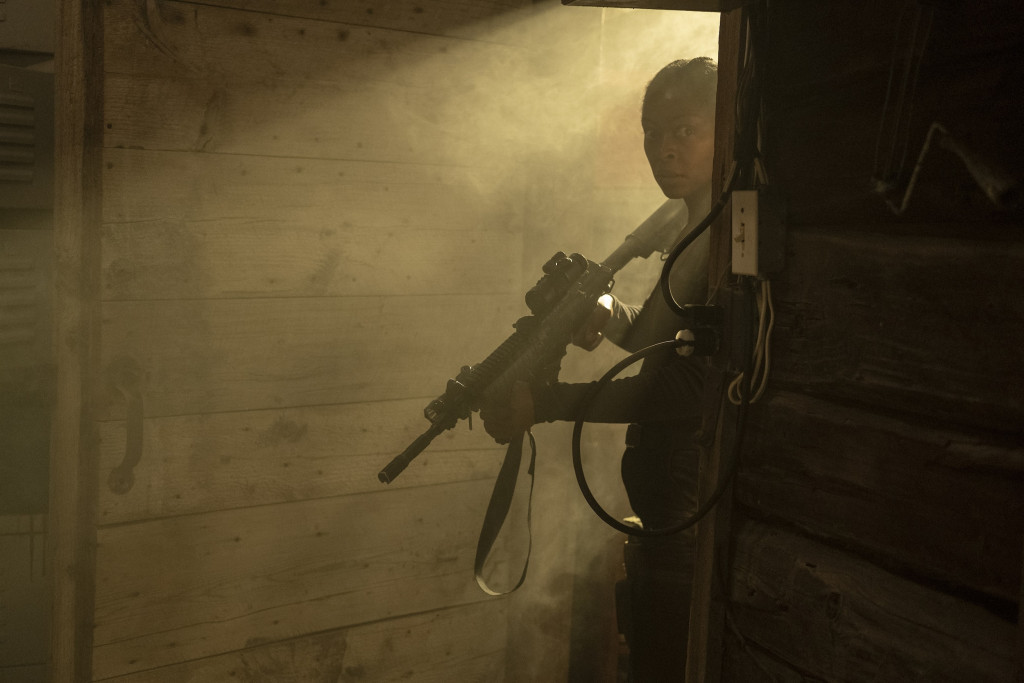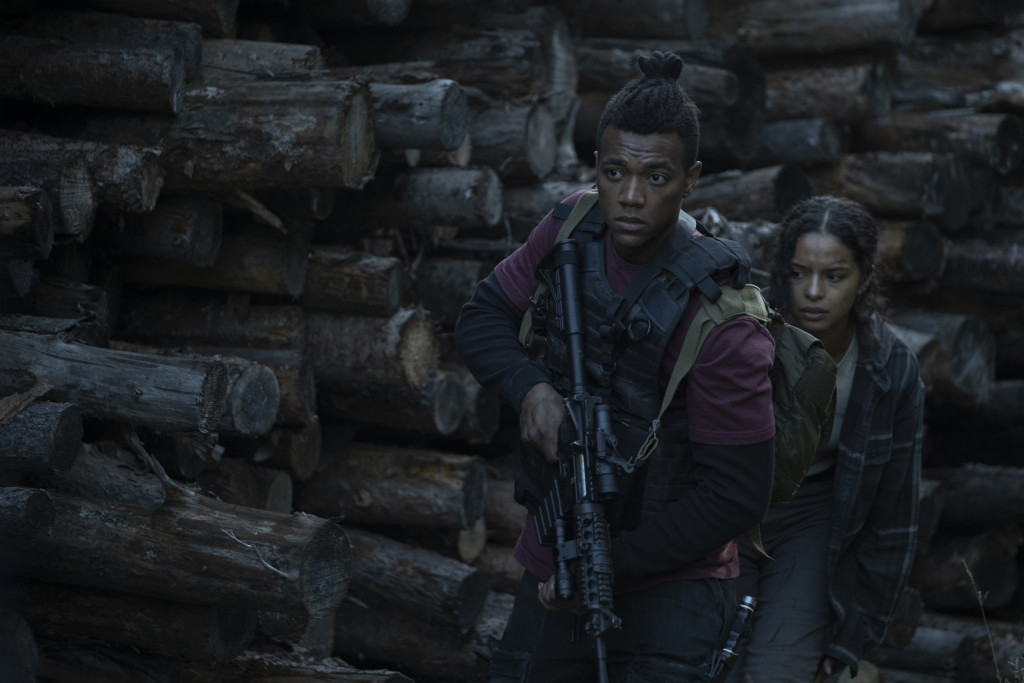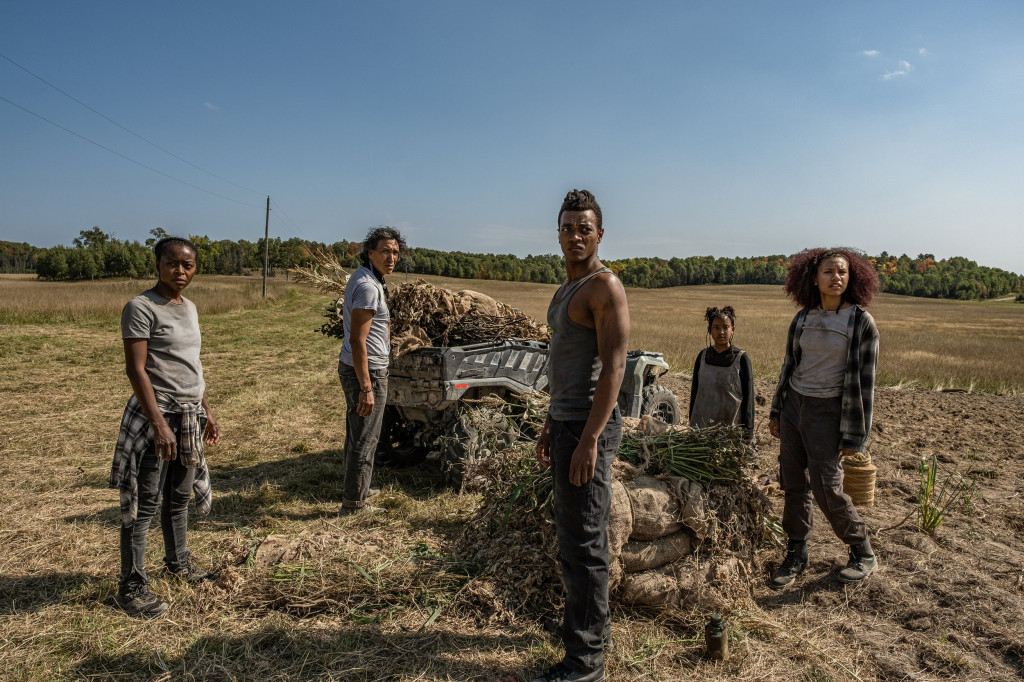In the middle of a famine-decimated future, the Freeman family is thriving. Not just surviving, thriving. But that stability hangs on discipline, secrecy, and one woman’s unshakeable will.
Welcome to 40 Acres, the intense, emotionally loaded thriller hitting theaters July 2, that does more than give us action, it gives us a layered meditation on motherhood, masculinity, and legacy.
Directed and co-written by R.T. Thorne, a music-video-vet-turned-filmmaker with deep roots in hip-hop and storytelling, 40 Acres is less about explosions and more about emotional truths wrapped in a sci-fi thriller shell.
“First and foremost, it starts with family,” Thorne shared in his exclusive interview with The Quintessental Gentleman. “The story is very much about a family… but the core of it is a mother-son story.”
That mother is Hailey Freeman, played with raw power and complexity by Danielle Deadwyler. A former soldier and matriarch with military training, Hailey is tasked with keeping her family alive, physically and spiritually.

“She was always top of mind,” said Thorne about casting Deadwyler. “She’s a scene stealer. She comes in, and she’s instantly the most magnetic person you see.”
But what gives 40 Acres its emotional core isn’t just Hailey’s strength, it’s the tension between her and her son Emanuel, played by rising talent Kataem O’Connor.
In a world where going beyond the family’s land can mean death, Emanuel’s desire for connection, love, and independence creates a rift that feels all too familiar for many Black families.
“I instantly related to that,” said O’Connor, reflecting on reading the script for the first time. “It touched on his relationship with his mother… being the firstborn son in the whole family. I understood the isolation, the seeking for identity, and everything that comes with the pressures of being the so-called ‘man of the house.’”
That push-pull dynamic between safety and freedom, structure and softness, is where 40 Acres truly shines. In this near-future wasteland, the film explores how legacy can both protect and confine.

And the film doesn’t just touch on the emotional, it’s also deeply cultural. There’s land ownership (finally), generational wisdom, the power of language and food, and the unshakable bond between Black and Indigenous identities.
“It became organic to me to have the family not just be a Black family… but also the Indigenous community whose land has been stolen from them,” Thorne explained. “I don’t think I’ve ever seen a Black and Indigenous family on screen, centered… as heroes.”
The characters in 40 Acres don’t just fight with weapons; they fight with knowledge, tradition, and discipline. Galen (Michael Greyeyes) teaches Cree to his daughters. Hailey makes her kids do history book reports. And Emanuel finds his soul in music.
“Music is such an important part of his life. It allows him to escape,” Thorne said. “It allows him to feel free in a place where he’s not.”
That theme of seeking freedom—real, soulful freedom—drives the story. Not freedom as an abstract ideal, but as the power to control your own narrative, your land, and your legacy. It’s also a direct callout to the concept of reparations, but not just economically.
40 Acres challenges viewers to think about emotional debt, inherited strength, and how we reclaim what we were never given.
And for Thorne, who started out directing music videos for artists like Kardinal Offishall and Jully Black, this story was personal from day one.
“My specific situation, it’s an immigrant mother that came to Canada, faced a lot of discrimination, a lot of racism… She tries to pass that knowledge and understanding of the world down to me as her son. And then me as her son—you know what it is—you’re looking for your own sense of freedom.”
The same goes for O’Connor. To prep for the role, he didn’t just hit the gym or memorize lines; he looked inward. “I was naturally very rebellious… I asked my mom, ‘How did I frustrate you growing up?’” he laughed. “I learned early on when you get the privilege to work with someone like Danielle [Deadwyler], just sit back and soak in as much as possible.”
And it shows.
40 Acres is gritty, emotional, timely—and yes, action-packed. But more than that, it’s an invitation for conversation. About land. About trust. About the quiet strength of mothers and the emotional weight Black sons often carry in silence.
Check out the full interview. 40 Acres hits theaters on July 2.
In a time where survival seems like enough, this film dares to ask: What does it look like for us to thrive?




